Vanessa is the farmer in the O’Connor family, although she herself came from a non-agricultural one. Her decision to pursue agriculture, she says, was never questioned by her family: “My parents married young and went to London in the 60s. They got away from the conservative Ireland of that time. They came back in the 70s, so I grew up in an open-minded home, free of stereotypical expectations.”
Although men have benefitted from marrying into farms for generations, it’s more unusual to hear about women picking up the mantle of “farmer” in a marriage. How it all came about sounds like any other boy-meets-girl story.
“I went to Copsewood and took ag science as a Leaving Cert subject, which led me to go on to the adjoining Pallaskenry Ag College to complete a certificate in agriculture. I got hooked on farming as a possible career – farming has always something to do, something different going on.”
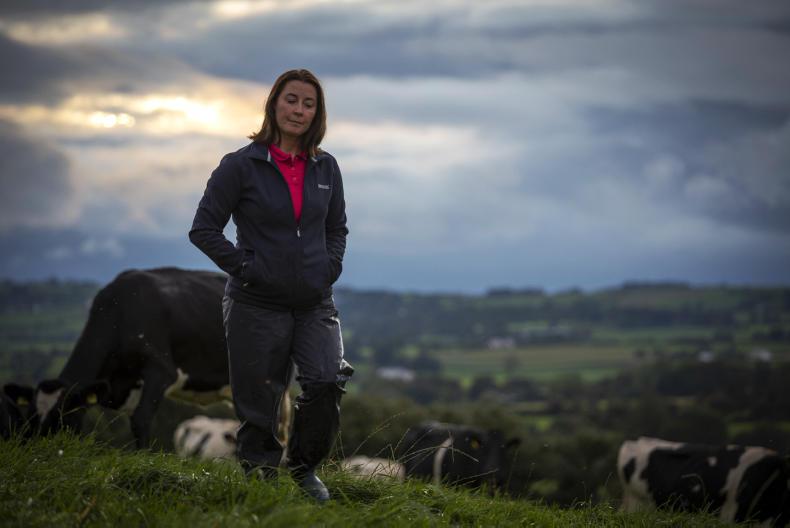
“No stone is left unturned when it comes to operating efficiently here,” Vanessa says. \ Leo Byrne
Vanessa went on to complete a certificate in farming with the Farm Apprenticeship Board, which involved living in with farm families as an apprentice. This was very important for someone who didn’t come from a farm, Vanessa explains: “You experienced the seasonality of farm work and were well familiarised with the farm before calving started. You were also part of the farm family. You learned how to farm, but also how to leave farm worries outside the door. I learned that farming isn’t just a job, it’s a way of life.”
It was while doing her apprenticeship that she met David, who just happened to be passing by the road around the same time each day that Vanessa would be leaving out the cows. “Convenient”, Irish Country Living notes.
In the 1960s, the farm was passed on to David’s mum Eileen, so technically his dad John married-in. Because of this, Vanessa’s father-in-law understood what it was like for her marrying-in. It was a different farm then. “Mixed,” she tells me, “there were pigs where the calf shed is now. And they had track dogs too and the proceeds from the dog sales built farm sheds.”
What they do
“David’s parents passed the farm to us – 28 cows and 43ac. We had built a bungalow on the farm, so we just swapped houses. David’s parents had the new house for their retirement and we could continue farming and rear our young family in the homestead, as they had done decades before.
“Most importantly, they were happy to retire and they left us do what we wanted to do with the farm without interference – this has been key to the success of our farm today.”
Vanessa took a long-term lease on 16ac bounding the home farm in 2009, which extended the milking platform. Today, on the 59ac, she is milking 62 cows along with rearing her replacement heifers. This year, she has managed to lease a further 30ac close-by, which will be used for silage and grazing for the heifers at the back end of the grazing year.
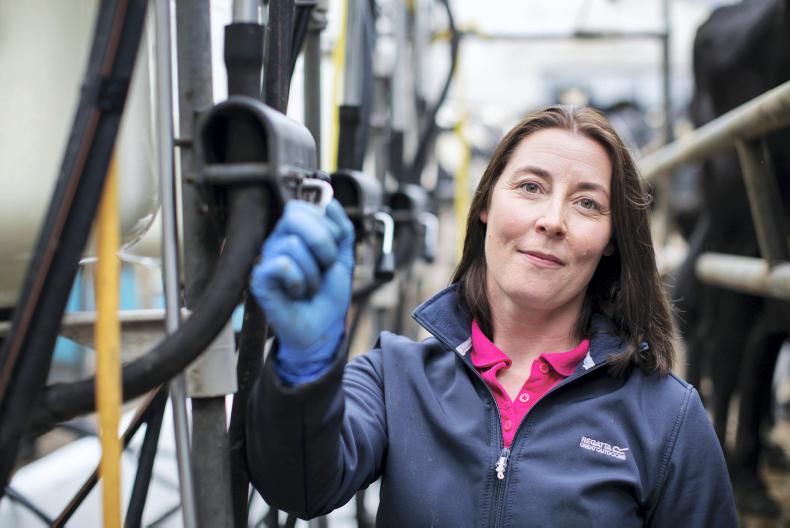
Vanessa in the parlour of her farm.\ Leo Byrne
“Land is at a premium price around here,” she exclaims. This is evident in the fact that when the 2009 lease was renewed last year, the price increased by €135/ac. But for Vanessa, it was a case of “take it at that price or lose some of my milk grazing platform”.
We ask if there is money in cows, even at stock numbers below the Irish average.
“For me, income and profit has always been about improving efficiency more than the need for huge expansion. No stone is left unturned when it comes to operating efficiently here. But I will never cut a corner when it comes to animal health or welfare to make a bit extra on paper.
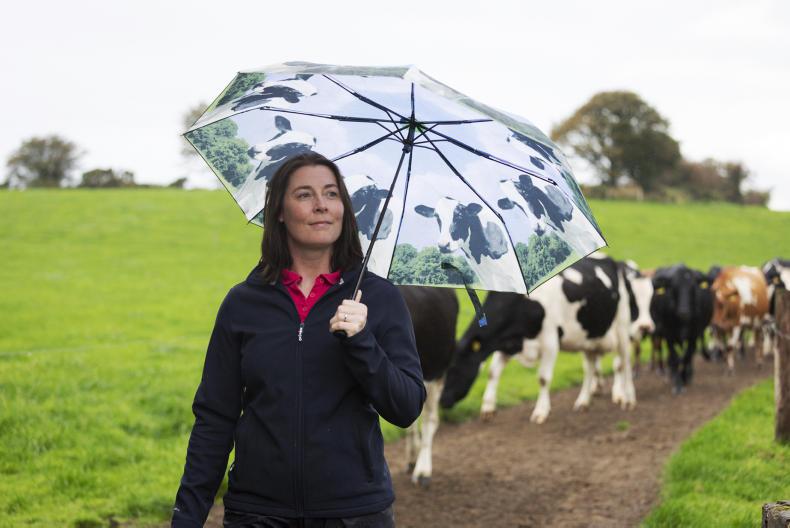
“The farm has developed over the years through cashflow and I’ve never had an overdraft facility. I work with two current accounts, one for the everyday running of the farm and home and I use the other account to put aside funds to pay the larger, end of year-type bills, such as the revenue tax and land rental.
“Two years ago, I took out my first farm loan, through Access, my local Credit Union, to put in a new bin and feeders and reroof one of the sheds after storm Ophelia. The loan is for five years, but I’ll pay it in three. I can’t stand being in debt. It’s just not how I like to operate the business.
“I resist machinery purchases. But when it comes to dealing with slurry efficiency and biosecurity, I want my independence. So the next investment will be for low-emission slurry spreading (LESS) equipment. I take economic, environmental and social sustainability very seriously, as the future of my business depends on me getting all three right. That, and anything to do with my cows and their health.
“Our farm buildings and animal handling facilities are almost where we want them to be. Once that is completed, we’ll focus on a few other projects that have been on the back burner.”
Making it work
“Marry smart,” Vanessa laughs, but then turns serious, explaining that farming presents the same set of problems encountered by any mother with a full-time job. Except the farming profession is a very dangerous job, which is not ideal when you’re on your own with children.
“For women who want to full-time dairy farm, rear a family and don’t have their spouse at home full time, as in my case – David works varying shift times – it is not easy to juggle everything.”
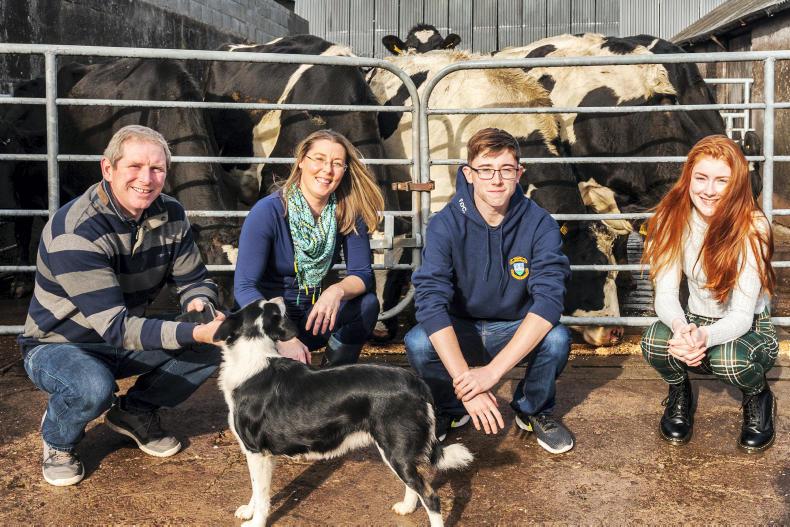
Vanessa says that now that her children are older she is giving more time to herself and her interests in farming. From left: David, Vanessa, Fintan and Sadhbh O'Connor.
Her advice? “Plan as much as possible with your partner to balance the housework, farmwork, childcare/school/activities. After all, it is a partnership/marriage and a family farm business, so everyone should be able to use the washing machine, cook, milk the cows and operate a tractor.
“If you can afford childcare and a cleaner, get it, even just for the calving/breeding season. Book the annual family holiday (and the relief milker) in January for later in the year so all the family can get off-farm together.”
Where to from here?
“Now that my children (Fintan, 19 and Sadhbh, 18) are older and I’ve hung up my Super-Mammy cloak after years of being dedicated to the cause, I am giving more time to myself and my interests in farming.”
And this is a lady that does not sit on her laurels. While currently taking part in the second phase of Carbery’s Greener farms and pilot AASAP schemes, she is also the vice chair of the ICMSA’s Business Committee.
In terms of succession planning, Vanessa and David want their children to go out and explore the world.
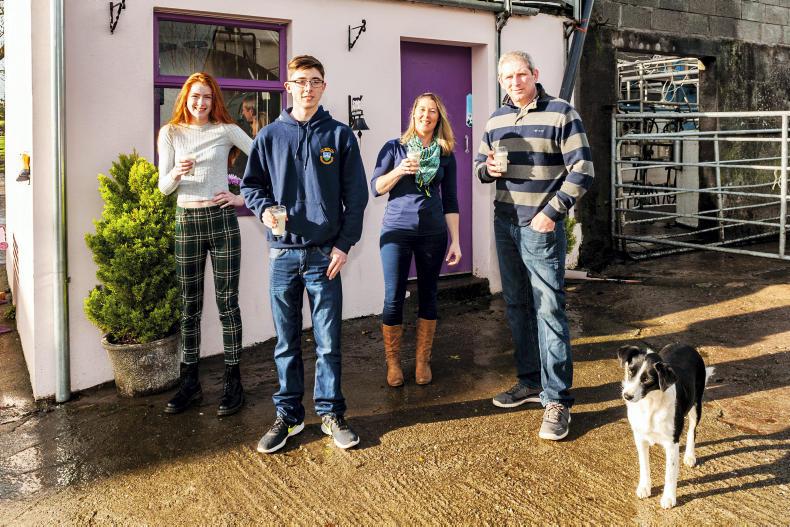
From left: Sadhbh, Fintan, Vanessa and David O'Connor.
“They have the grounding of growing up on a farm and if they decide farming is for them, then great. If they don’t want to take it over, I don’t see us selling. Renting it out, perhaps.
“That said, we always keep the future of the farm a topic of family discussion. They know they will always have a say in the future direction of our family farm.”
“There wasn’t any career guidance or direction in the late 80s. No real talk of college. I remember when Fintan was going into first year, his principal said: ‘You want your child to achieve their full potential.’ I realised I was on this journey with my kids, but had not reached my own full potential.”

Vanessa Kiely O'Connor, Joe Leonard and Edward Canny graduating from UCD with professional certificate in business strategy (Farming) UCD. \ Barry Cronin
Signing up for the Smurfit/Teagasc Farm Business course changed all of that. “The course gave me the confidence I needed to plan to achieve a profitable farm business. The course had been my first opportunity in years to engage back successfully with education.”
Provided that the universities open this month, she will start a diploma in environmental science and social policy in UCC, along with a group of Carbery’s Greener Dairy Farmers in October.
“If all goes well over the next few years, I’d like to get a college degree.”
Last word
“I followed an interest, which developed into a career and livelihood
I’m passionate about, I’m not sure how much better it gets but
I’m certainly going to find out!” Watch this space.
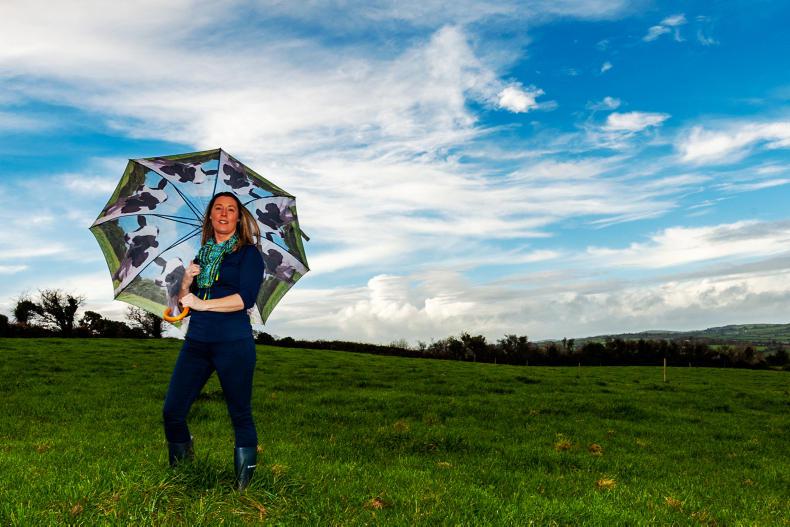
Vanessa Kiely O'Connor on her farm.
Our two children.. lolWinning awards is recognition for the years of work on the family farm.
(Vanessa won the Carbery Top Milk Supplier award in 2011 and the National Dairy Council Award for Best Quality Milk in a herd under 50 cows. In 2018 she won the Carbery Farm Sustainability Award and represented Bandon Co-op at the Bord Bia Sustainability Awards.)
“I’ve worked with Ornua to share the story of Irish family dairy farms to our customers abroad”.
She also shares her dairy farm stories on Instagram connecting with consumers near and far. “Any Irish farmer sharing their farm story on social media should regard themselves as ambassadors”.
Failure
“Being too independent and not asking for help. I juggled too much when the children were younger and I found it hard to make time for family or my own interests outside the farm.”
Learning
“Burning the candle at both ends will eventually catch up with you and trying to do everything causes burnout.”
Message
“Go to meetings: young farmers and female farmers should go to local farming meetings whether it is the co-op or their chosen farm lobbying group. We all have a say in how policies are formed and if farmers don’t attend meetings how are the lobby groups supposed to represent us? Farm women rarely show up to these meetings, I do not know why. Farm families are running a farm business, therefore all the stakeholders (ie family members) should attend meetings for the benefit of their business.”
Believe in your abilities and celebrate your achievements as a family.Use all the IT tools/programs to assist in farm management decisions.Keep safety a priority every day. Upskill yourself at every opportunity.Join a discussion group.Get involved.Ask for help.Make time every day to do something for yourself.
Vanessa is the farmer in the O’Connor family, although she herself came from a non-agricultural one. Her decision to pursue agriculture, she says, was never questioned by her family: “My parents married young and went to London in the 60s. They got away from the conservative Ireland of that time. They came back in the 70s, so I grew up in an open-minded home, free of stereotypical expectations.”
Although men have benefitted from marrying into farms for generations, it’s more unusual to hear about women picking up the mantle of “farmer” in a marriage. How it all came about sounds like any other boy-meets-girl story.
“I went to Copsewood and took ag science as a Leaving Cert subject, which led me to go on to the adjoining Pallaskenry Ag College to complete a certificate in agriculture. I got hooked on farming as a possible career – farming has always something to do, something different going on.”

“No stone is left unturned when it comes to operating efficiently here,” Vanessa says. \ Leo Byrne
Vanessa went on to complete a certificate in farming with the Farm Apprenticeship Board, which involved living in with farm families as an apprentice. This was very important for someone who didn’t come from a farm, Vanessa explains: “You experienced the seasonality of farm work and were well familiarised with the farm before calving started. You were also part of the farm family. You learned how to farm, but also how to leave farm worries outside the door. I learned that farming isn’t just a job, it’s a way of life.”
It was while doing her apprenticeship that she met David, who just happened to be passing by the road around the same time each day that Vanessa would be leaving out the cows. “Convenient”, Irish Country Living notes.
In the 1960s, the farm was passed on to David’s mum Eileen, so technically his dad John married-in. Because of this, Vanessa’s father-in-law understood what it was like for her marrying-in. It was a different farm then. “Mixed,” she tells me, “there were pigs where the calf shed is now. And they had track dogs too and the proceeds from the dog sales built farm sheds.”
What they do
“David’s parents passed the farm to us – 28 cows and 43ac. We had built a bungalow on the farm, so we just swapped houses. David’s parents had the new house for their retirement and we could continue farming and rear our young family in the homestead, as they had done decades before.
“Most importantly, they were happy to retire and they left us do what we wanted to do with the farm without interference – this has been key to the success of our farm today.”
Vanessa took a long-term lease on 16ac bounding the home farm in 2009, which extended the milking platform. Today, on the 59ac, she is milking 62 cows along with rearing her replacement heifers. This year, she has managed to lease a further 30ac close-by, which will be used for silage and grazing for the heifers at the back end of the grazing year.

Vanessa in the parlour of her farm.\ Leo Byrne
“Land is at a premium price around here,” she exclaims. This is evident in the fact that when the 2009 lease was renewed last year, the price increased by €135/ac. But for Vanessa, it was a case of “take it at that price or lose some of my milk grazing platform”.
We ask if there is money in cows, even at stock numbers below the Irish average.
“For me, income and profit has always been about improving efficiency more than the need for huge expansion. No stone is left unturned when it comes to operating efficiently here. But I will never cut a corner when it comes to animal health or welfare to make a bit extra on paper.

“The farm has developed over the years through cashflow and I’ve never had an overdraft facility. I work with two current accounts, one for the everyday running of the farm and home and I use the other account to put aside funds to pay the larger, end of year-type bills, such as the revenue tax and land rental.
“Two years ago, I took out my first farm loan, through Access, my local Credit Union, to put in a new bin and feeders and reroof one of the sheds after storm Ophelia. The loan is for five years, but I’ll pay it in three. I can’t stand being in debt. It’s just not how I like to operate the business.
“I resist machinery purchases. But when it comes to dealing with slurry efficiency and biosecurity, I want my independence. So the next investment will be for low-emission slurry spreading (LESS) equipment. I take economic, environmental and social sustainability very seriously, as the future of my business depends on me getting all three right. That, and anything to do with my cows and their health.
“Our farm buildings and animal handling facilities are almost where we want them to be. Once that is completed, we’ll focus on a few other projects that have been on the back burner.”
Making it work
“Marry smart,” Vanessa laughs, but then turns serious, explaining that farming presents the same set of problems encountered by any mother with a full-time job. Except the farming profession is a very dangerous job, which is not ideal when you’re on your own with children.
“For women who want to full-time dairy farm, rear a family and don’t have their spouse at home full time, as in my case – David works varying shift times – it is not easy to juggle everything.”

Vanessa says that now that her children are older she is giving more time to herself and her interests in farming. From left: David, Vanessa, Fintan and Sadhbh O'Connor.
Her advice? “Plan as much as possible with your partner to balance the housework, farmwork, childcare/school/activities. After all, it is a partnership/marriage and a family farm business, so everyone should be able to use the washing machine, cook, milk the cows and operate a tractor.
“If you can afford childcare and a cleaner, get it, even just for the calving/breeding season. Book the annual family holiday (and the relief milker) in January for later in the year so all the family can get off-farm together.”
Where to from here?
“Now that my children (Fintan, 19 and Sadhbh, 18) are older and I’ve hung up my Super-Mammy cloak after years of being dedicated to the cause, I am giving more time to myself and my interests in farming.”
And this is a lady that does not sit on her laurels. While currently taking part in the second phase of Carbery’s Greener farms and pilot AASAP schemes, she is also the vice chair of the ICMSA’s Business Committee.
In terms of succession planning, Vanessa and David want their children to go out and explore the world.

From left: Sadhbh, Fintan, Vanessa and David O'Connor.
“They have the grounding of growing up on a farm and if they decide farming is for them, then great. If they don’t want to take it over, I don’t see us selling. Renting it out, perhaps.
“That said, we always keep the future of the farm a topic of family discussion. They know they will always have a say in the future direction of our family farm.”
“There wasn’t any career guidance or direction in the late 80s. No real talk of college. I remember when Fintan was going into first year, his principal said: ‘You want your child to achieve their full potential.’ I realised I was on this journey with my kids, but had not reached my own full potential.”

Vanessa Kiely O'Connor, Joe Leonard and Edward Canny graduating from UCD with professional certificate in business strategy (Farming) UCD. \ Barry Cronin
Signing up for the Smurfit/Teagasc Farm Business course changed all of that. “The course gave me the confidence I needed to plan to achieve a profitable farm business. The course had been my first opportunity in years to engage back successfully with education.”
Provided that the universities open this month, she will start a diploma in environmental science and social policy in UCC, along with a group of Carbery’s Greener Dairy Farmers in October.
“If all goes well over the next few years, I’d like to get a college degree.”
Last word
“I followed an interest, which developed into a career and livelihood
I’m passionate about, I’m not sure how much better it gets but
I’m certainly going to find out!” Watch this space.

Vanessa Kiely O'Connor on her farm.
Our two children.. lolWinning awards is recognition for the years of work on the family farm.
(Vanessa won the Carbery Top Milk Supplier award in 2011 and the National Dairy Council Award for Best Quality Milk in a herd under 50 cows. In 2018 she won the Carbery Farm Sustainability Award and represented Bandon Co-op at the Bord Bia Sustainability Awards.)
“I’ve worked with Ornua to share the story of Irish family dairy farms to our customers abroad”.
She also shares her dairy farm stories on Instagram connecting with consumers near and far. “Any Irish farmer sharing their farm story on social media should regard themselves as ambassadors”.
Failure
“Being too independent and not asking for help. I juggled too much when the children were younger and I found it hard to make time for family or my own interests outside the farm.”
Learning
“Burning the candle at both ends will eventually catch up with you and trying to do everything causes burnout.”
Message
“Go to meetings: young farmers and female farmers should go to local farming meetings whether it is the co-op or their chosen farm lobbying group. We all have a say in how policies are formed and if farmers don’t attend meetings how are the lobby groups supposed to represent us? Farm women rarely show up to these meetings, I do not know why. Farm families are running a farm business, therefore all the stakeholders (ie family members) should attend meetings for the benefit of their business.”
Believe in your abilities and celebrate your achievements as a family.Use all the IT tools/programs to assist in farm management decisions.Keep safety a priority every day. Upskill yourself at every opportunity.Join a discussion group.Get involved.Ask for help.Make time every day to do something for yourself. 










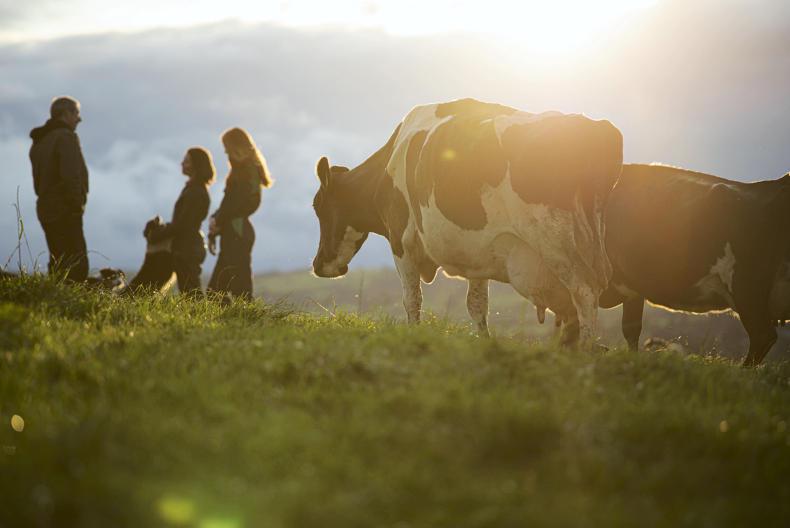
SHARING OPTIONS